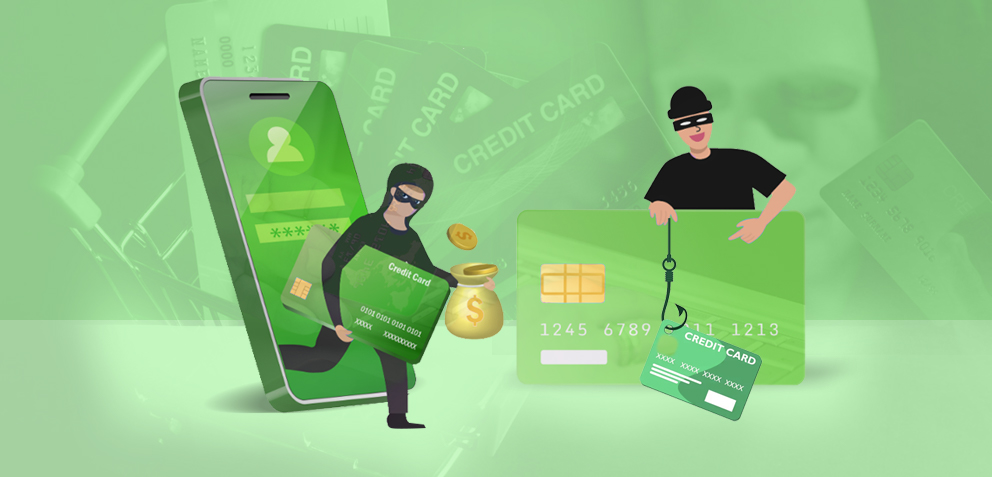
Hackers Target Sporting Events: Tips to Prevent Identity Theft
January 10,2025
7 mins
Hackers Target Sporting Events: Tips to Prevent Identity Theft
Cybercriminals are making the most of the hype of predominant global activities like sporting championships, registering faux domains to execute phishing and rip-off attacks. These misleading approaches aim to take advantage of public interest, with hackers targeting unsuspecting individuals looking for occasion-related records.
Event-associated abuse prefers patterns consisting of domain registrations, DNS visitors, URL traffic, maximum active domains, verdict alternate requests, and domain textual patterns.
High-profile international events, product launches, and sporting championships attract cybercriminals seeking to capitalize on public excitement.
“These criminals register deceptive domains mimicking official websites to sell counterfeit merchandise and offer fraudulent services. These sites can reach millions of people searching for event-related information or resources”, Palo Alto Networks report shared with Cyber Security News.
| Table of Contents!
Fake Domains: A Key Strategy for Cybercriminals DNS and URL Traffic Reveal Hacker Tactics Proactive Monitoring is the Best Defense Signs of Identity Theft How to Protect Yourself from Identity Theft Get AVP Suite for Identity Theft Prevention Final Takeaway! |
Fake Domains: A Key Strategy for Cybercriminals
One of the primary actions hackers use is registering domain names containing event-specific keywords. Reports highlight that over 200,000 newly registered domains (NRDs) are detected daily using resources like zone files, WHOIS databases, and passive DNS. Many of those domain names show off characteristics that trace malicious intent, including suspicious keywords, patterns, or top-level domain (TLD) systems.
By studying these NRDs, cybersecurity groups can perceive common textual styles that endorse coordinated efforts by threat actors. For instance, researchers have mentioned that spikes in NRDs with event-particular keywords frequently coincide with predominant milestones, indicating premeditated campaigns.
DNS and URL Traffic Reveal Hacker Tactics
DNS traffic evaluation offers important insights into potential threats. Unusual spikes in domain queries often indicate malicious activities, along with Command and Control (C2) communications.
During the 2024 Olympic Games, fraudulent DNS traffic accounted for 10% to 15% of total activity, with significant surges recorded on April 20 (100-day countdown) and July 26 (opening ceremony).
Similarly, URL traffic patterns show hackers exploiting occasion-related domains to attract unsuspecting customers. Sudden increases in suspicious site visitors often align with key event dates, exposing processes used to direct individuals to phishing websites.
Change request trends—changes made to recategorize network domains—further spotlight the evolving techniques of cybercriminals. These spikes frequently result from surprising events or changes in consumer behavior, supplying additional clues about rising threats.
Related Read: Top 7 Tips to Safeguard Your Digital Identity Like a Pro!
Proactive Monitoring is the Best Defense
“By monitoring key metrics like domain registrations, textual patterns, DNS anomalies, and change request trends, security teams can identify and mitigate threats early,” researchers stated.
The insights received from examining NRDs, DNS traffic, and URL styles enable corporations to block malicious domain names earlier than they could cause massive damage. As high-profile activities draw huge online interest, proactive monitoring remains the best way to thwart opportunistic scams and defend customers from falling victim to cyberattacks.
With the growing frequency of such tactics, staying ahead of these digital threats is crucial for safeguarding both individuals and organizations during globally celebrated events.
Signs of Identity Theft
- Unexpected Account Charges: Unrecognized transactions to your bank or credit card statements.
- Denied Credit Applications: Rejections without clean motives despite precise credit records.
- Missing Mail: Bills or financial documents now not arriving could imply mail interception.
- Suspicious Alerts: Notifications for surprising logins or password changes.
Want to Read the Latest Cybersecurity News?Stay Updated with AVP Daily |
How to Protect Yourself from Identity Theft
Identity theft is a growing threat in today’s interconnected world, compromising millions of individuals annually.
According to Statista, over 15 million Americans experienced identity theft in 2022, leading to billions in losses.
Protecting your personal data online is critical for maintaining data privacy and financial security.
Below, we outline key signs of identity theft and practical steps to protect yourself, with tools like AVP Total Security ensuring robust online data protection.
- Monitor Your Accounts: Regularly check bank and credit card statements for unauthorized or suspicious activities.
- Enable Fraud Alerts: Activate alerts for suspicious transactions with your financial institutions.
- Use Strong Passwords: Secure your online accounts with particular passwords and enable two-factor authentication.
- Secure Devices with AVP Suite: Invest in AVP Total Security, which includes tools to prevent phishing, malware, and data breaches.
- Be Cautious Online: Avoid sharing private data on unverified websites or through unsolicited communications.
- Update Software Regularly: Keep all devices and applications updated to patch vulnerabilities.
- Dark Web Monitoring: Use AVP’s antivirus software to check in case your information is exposed on the dark web.
Read More: 7 Essential Safety Tips to Protect Yourself from Travel Scams
Get AVP Suite for Identity Theft Prevention
- Advanced Phishing and Scam Prevention: AVP Suite identifies and eliminates phishing emails and malicious links that cybercriminals use to steal your login credentials and personal information.
- Two-Factor Authentication Integration: The software supports two-factor authentication to add an extra layer of security to your online accounts, ensuring login protection against unauthorized access.
- Real-Time Malware Protection: AVP Suite’s advanced malware protection shields your devices from spyware, keyloggers, and other malicious software designed to capture sensitive login details.
- Dark Web Monitoring: AVP Suite actively scans the dark web for your stolen data, alerting you if your personal information or login credentials are at risk.
- Automatic Security Updates: The software ensures your system stays updated with the latest cybersecurity protocols, protecting against evolving threats and vulnerabilities.
- Suspicious Activity Monitoring: AVP Suite monitors and analyzes unusual login attempts or suspicious behaviors to prevent unauthorized access.
- Encrypted Online Sessions
It guarantees online data protection by encrypting your browsing sessions, safeguarding sensitive information like login details from being intercepted. - Data Privacy Controls: AVP Suite offers tools to limit the amount of personal data shared online, reducing exposure to phishing and scam attacks.
- Comprehensive Cybersecurity Ecosystem: AVP Total Security integrates all features into a seamless system, offering unparalleled protection for your login credentials and personal data.
Final Takeaway!
While hackers continue exploiting sporting events’ excitement to target unsuspecting individuals, you don’t have to play defense alone. Protecting your digital identity and securing your online presence is crucial in today’s cyber landscape.
AVP Total Security offers robust protection to keep hackers at bay, ensuring your personal information, login credentials, and online activities remain safe. With advanced identity theft prevention, login protection, and proactive alerts, AVP Suite is your ultimate defense against cyber threats.
Secure your identity with AVP Total Security now!
Cybercriminals are making the most of the hype of predominant global activities like sporting championships, registering faux domains to execute phishing and rip-off attacks. These misleading approaches aim to take advantage of public interest, with hackers targeting unsuspecting individuals looking for occasion-related records.
Event-associated abuse prefers patterns consisting of domain registrations, DNS visitors, URL traffic, maximum active domains, verdict alternate requests, and domain textual patterns.
High-profile international events, product launches, and sporting championships attract cybercriminals seeking to capitalize on public excitement.
“These criminals register deceptive domains mimicking official websites to sell counterfeit merchandise and offer fraudulent services. These sites can reach millions of people searching for event-related information or resources”, Palo Alto Networks report shared with Cyber Security News.
Fake Domains: A Key Strategy for Cybercriminals
One of the primary actions hackers use is registering domain names containing event-specific keywords. Reports highlight that over 200,000 newly registered domains (NRDs) are detected daily using resources like zone files, WHOIS databases, and passive DNS. Many of those domain names show off characteristics that trace malicious intent, including suspicious keywords, patterns, or top-level domain (TLD) systems.
By studying these NRDs, cybersecurity groups can perceive common textual styles that endorse coordinated efforts by threat actors. For instance, researchers have mentioned that spikes in NRDs with event-particular keywords frequently coincide with predominant milestones, indicating premeditated campaigns.
DNS and URL Traffic Reveal Hacker Tactics
DNS traffic evaluation offers important insights into potential threats. Unusual spikes in domain queries often indicate malicious activities, along with Command and Control (C2) communications.
During the 2024 Olympic Games, fraudulent DNS traffic accounted for 10% to 15% of total activity, with significant surges recorded on April 20 (100-day countdown) and July 26 (opening ceremony).
Similarly, URL traffic patterns show hackers exploiting occasion-related domains to attract unsuspecting customers. Sudden increases in suspicious site visitors often align with key event dates, exposing processes used to direct individuals to phishing websites.
Change request trends—changes made to recategorize network domains—further spotlight the evolving techniques of cybercriminals. These spikes frequently result from surprising events or changes in consumer behavior, supplying additional clues about rising threats.
Related Read: Top 7 Tips to Safeguard Your Digital Identity Like a Pro!
Proactive Monitoring is the Best Defense
“By monitoring key metrics like domain registrations, textual patterns, DNS anomalies, and change request trends, security teams can identify and mitigate threats early,” researchers stated.
The insights received from examining NRDs, DNS traffic, and URL styles enable corporations to block malicious domain names earlier than they could cause massive damage. As high-profile activities draw huge online interest, proactive monitoring remains the best way to thwart opportunistic scams and defend customers from falling victim to cyberattacks.
With the growing frequency of such tactics, staying ahead of these digital threats is crucial for safeguarding both individuals and organizations during globally celebrated events.
Signs of Identity Theft
- Unexpected Account Charges: Unrecognized transactions to your bank or credit card statements.
- Denied Credit Applications: Rejections without clean motives despite precise credit records.
- Missing Mail: Bills or financial documents now not arriving could imply mail interception.
- Suspicious Alerts: Notifications for surprising logins or password changes.
How to Protect Yourself from Identity Theft
Identity theft is a growing threat in today’s interconnected world, compromising millions of individuals annually.
According to Statista, over 15 million Americans experienced identity theft in 2022, leading to billions in losses.
Protecting your personal data online is critical for maintaining data privacy and financial security.
Below, we outline key signs of identity theft and practical steps to protect yourself, with tools like AVP Total Security ensuring robust online data protection.
- Monitor Your Accounts: Regularly check bank and credit card statements for unauthorized or suspicious activities.
- Enable Fraud Alerts: Activate alerts for suspicious transactions with your financial institutions.
- Use Strong Passwords: Secure your online accounts with particular passwords and enable two-factor authentication.
- Secure Devices with AVP Suite: Invest in AVP Total Security, which includes tools to prevent phishing, malware, and data breaches.
- Be Cautious Online: Avoid sharing private data on unverified websites or through unsolicited communications.
- Update Software Regularly: Keep all devices and applications updated to patch vulnerabilities.
- Dark Web Monitoring: Use AVP’s antivirus software to check in case your information is exposed on the dark web.
Read More: 7 Essential Safety Tips to Protect Yourself from Travel Scams
Get AVP Suite for Identity Theft Prevention
- Advanced Phishing and Scam Prevention: AVP Suite identifies and eliminates phishing emails and malicious links that cybercriminals use to steal your login credentials and personal information.
- Two-Factor Authentication Integration: The software supports two-factor authentication to add an extra layer of security to your online accounts, ensuring login protection against unauthorized access.
- Real-Time Malware Protection: AVP Suite’s advanced malware protection shields your devices from spyware, keyloggers, and other malicious software designed to capture sensitive login details.
- Dark Web Monitoring: AVP Suite actively scans the dark web for your stolen data, alerting you if your personal information or login credentials are at risk.
- Automatic Security Updates: The software ensures your system stays updated with the latest cybersecurity protocols, protecting against evolving threats and vulnerabilities.
- Suspicious Activity Monitoring: AVP Suite monitors and analyzes unusual login attempts or suspicious behaviors to prevent unauthorized access.
- Encrypted Online Sessions
It guarantees online data protection by encrypting your browsing sessions, safeguarding sensitive information like login details from being intercepted. - Data Privacy Controls: AVP Suite offers tools to limit the amount of personal data shared online, reducing exposure to phishing and scam attacks.
- Comprehensive Cybersecurity Ecosystem: AVP Total Security integrates all features into a seamless system, offering unparalleled protection for your login credentials and personal data.
Final Takeaway!
While hackers continue exploiting sporting events’ excitement to target unsuspecting individuals, you don’t have to play defense alone. Protecting your digital identity and securing your online presence is crucial in today’s cyber landscape.
AVP Total Security offers robust protection to keep hackers at bay, ensuring your personal information, login credentials, and online activities remain safe. With advanced identity theft prevention, login protection, and proactive alerts, AVP Suite is your ultimate defense against cyber threats.
Secure your identity with AVP Total Security now!
Keep it safe from cybercriminals with AVP Total Security
Claim Your Free Trial!






